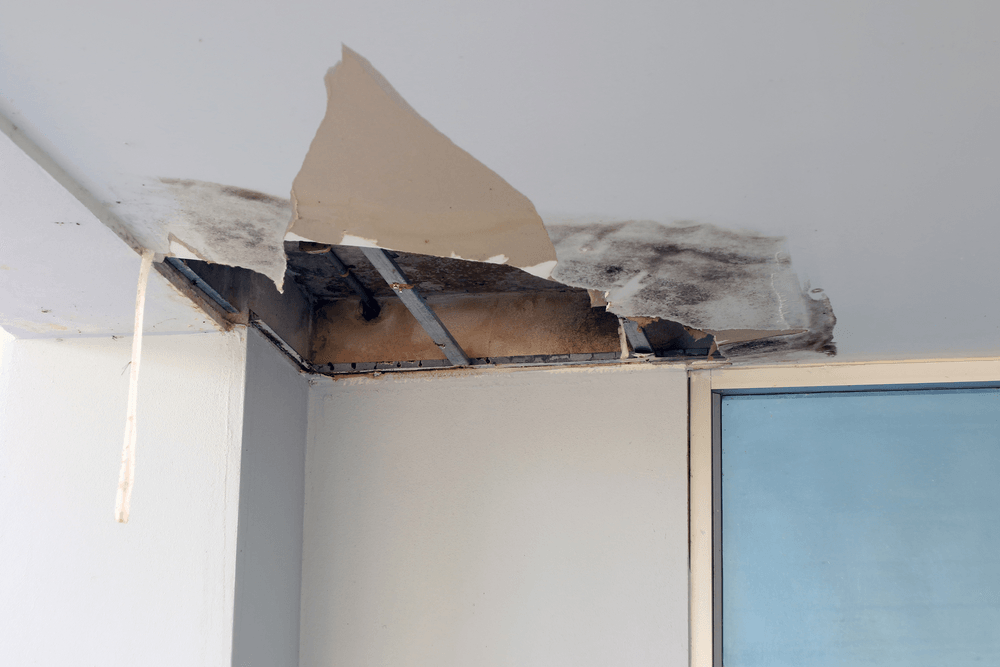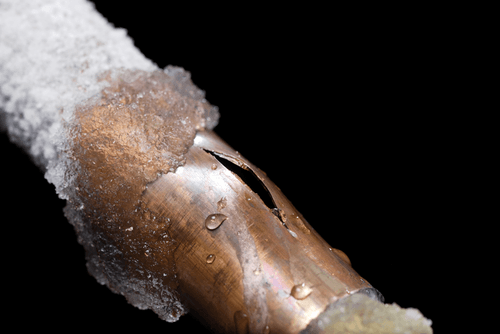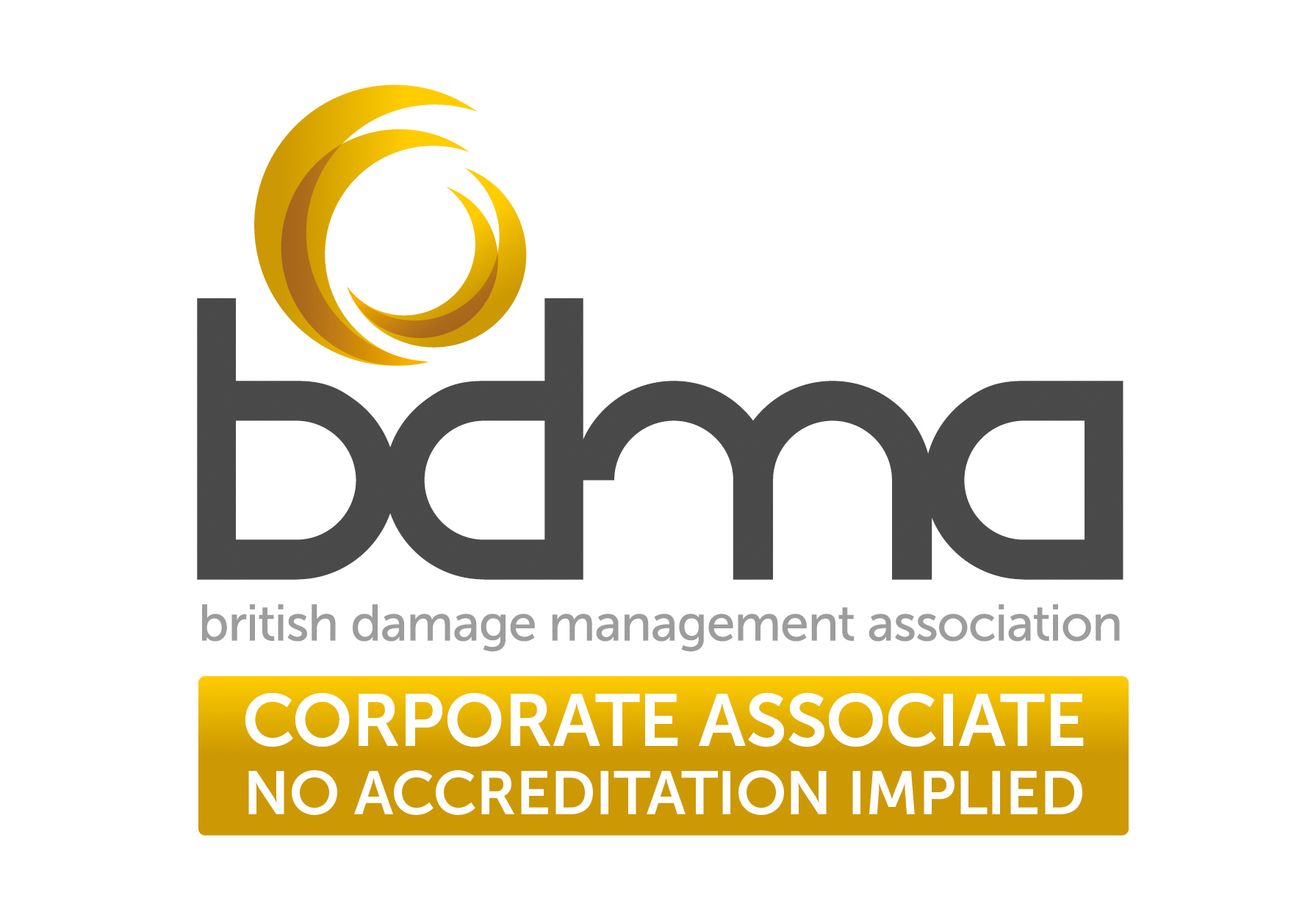Flooding can happen in a variety of ways, causing serious water damage to your home or business. Whether it is due to extreme weather or issues with your plumbing system, it is vital to do everything possible to mitigate the risk of flooding and the damage it causes. In this article we will take a look at the types of water damage you might experience in either residential or commercial properties. We will also take a look at ways in which you can mitigate or prevent water damage and how Flood Doctor can help with water damage remediation.
What are the types of water damage?
As previously mentioned, there are many different types of water damage that a property may experience. Some are caused by poorly maintained plumbing in your property, whilst others are as a result of natural occurrences that cannot be stopped but can be protected against.

A flood caused by weather, such as heavy rain causing drains to overflow or a river bursting its banks, can be extreme causes of flooding. More everyday reasons include burst water tanks and leaking or burst water pipes. You may also experience sewage backup in a toilet or sink. All of these forms of flooding can cause serious damage to your property.
If you are concerned about any water damage within your property, give Flood Doctor a call today on 0800 285 1447.
Building insurance
One of the most important parts of owning or renting a home or business is having building insurance. This can help to protect you in a number of different scenarios, with flooding being just one of these. Building insurance will cover the cost of water damage caused to your property’s structure.
There are some situations that are generally covered under a building insurance policy, such as loss or damage caused by fire, vandalism, storms, theft, floods, and natural disasters such as earthquakes - though this will depend largely on your provider. The amount of cover you receive will also vary.
Make sure that you have building insurance that covers everything you need and check your insurance policy before damage occurs in order to ensure you are fully covered. If you don’t, you could be left with a big bill after a flood or similar event.
How can I mitigate or prevent water damage?
Locate stopcocks
Floods can happen at any time and for many reasons, so knowing how to stop the flow of water quickly is vital. A stopcock controls the flow of water to your home or business, so knowing where yours is, is very important. In most homes, these are under the kitchen sink, but they may be in different locations - so double check this. You should also test your stopcock to ensure that it is working. This can prevent you from finding a faulty stopcock at the worst moment and being unable to stop the flow of water.
Check pipes
Your pipes are the heart of your plumbing system, so you should make sure to check them regularly. If you notice a noise in your walls (normally a knocking noise - known as a water hammer) or a shrill singing sound, then this can point to damaged pipes. Other indicators might be water not flowing as strongly. If your pipes are not performing as normal, then getting a professional plumber to check them is a good idea. You can, of course, check your own pipes to see if they are cracked or leaking, which will need to be remedied by a professiona. This will help to prevent flooding, as well as preventing additional pressure on the rest of your pipework and plumbing system.
Toilets and sinks
One major cause of plumbing issues that lead to flooding can be as simple as backed up toilets and sinks. Whether you are at home or at work, being careful with how you use your toilets and sinks can help to prevent this - and this should also be applied to shower and bath drains.
Toilets should only ever be used for organic waste and a reasonable amount of toilet paper. For example, you should never flush sanitary products, an excess of toilet paper or makeup remover wipes down your toilet.
Similarly, sinks should not be used for disposing of food or cooking oil and grease. These can lead to a build up in your pipes, and in extreme circumstances can cause sewage back up further down the plumbing system. This can lead to water not being able to move through your pipes and can cause flooding very quickly - so caution exercised ahead of time is the best prevention.
How can I prevent frozen pipes?
Frozen pipes are a common occurrence in winter. You may notice pipes have frozen if there is no water coming from your faucets, there is frost on the outside of the pipes, or you notice an unpleasant smell coming from your drains even with no other notable signs. Dropping temperatures can cause water to freeze inside your pipes - as water freezes, it can expand, causing the pipes to crack and burst.

While you cannot prevent cold weather from occurring, you can make sure that your pipes have been properly laid and insulated. This can help to project them from dropped temperatures. You should also keep your heating on even if you are away from your home or business, as keeping your heating on low keeps your pipes warm enough to prevent the water from freezing.
Another easy way to prevent your pipes from freezing and bursting is turning your taps on regularly throughout the day - this keeps the water moving rather than standing and becoming frozen in low temperatures.
What about flooded basements?
Having a basement in your property can be a great place for storage or even converting into a usable room. However, basements are prone to flooding as they are below your property. Common causes of basement flooding can be flash flooding and groundwater flooding. Other causes may include your home or business having poor drainage overall, causing the water to run to the lowest point of the property. Sewage backups often impact basements first.
In order to prevent basement flooding as much as possible, it is important to check your foundation. You will be able to find out if any cracks are present and have them repaired. You should also clean your roof gutters regularly in order to make sure that they do not overflow in bad weather. It may also be advisable to speak to a plumber about installing a sump pump to reduce the risk of flooding even further. Preventing flooding in a basement is easier than it is to clean up afterwards, so checking these elements of your basement can save you a lot of hassle and money in the future.
Flooding may not always be preventable, however with these considerations in mind, you can reduce the chances of both the occurrence and the damage if flooding occurs. If you need support with water damage restoration, Flood Doctor can help. We are experts in water damage remediation and can support you in getting your home or business back to its best after even significant water damage, no matter the cause. Get in touch to find out how we can help you.
If you are concerned about any water damage within your property, give Flood Doctor a call today on 0800 285 1447.








